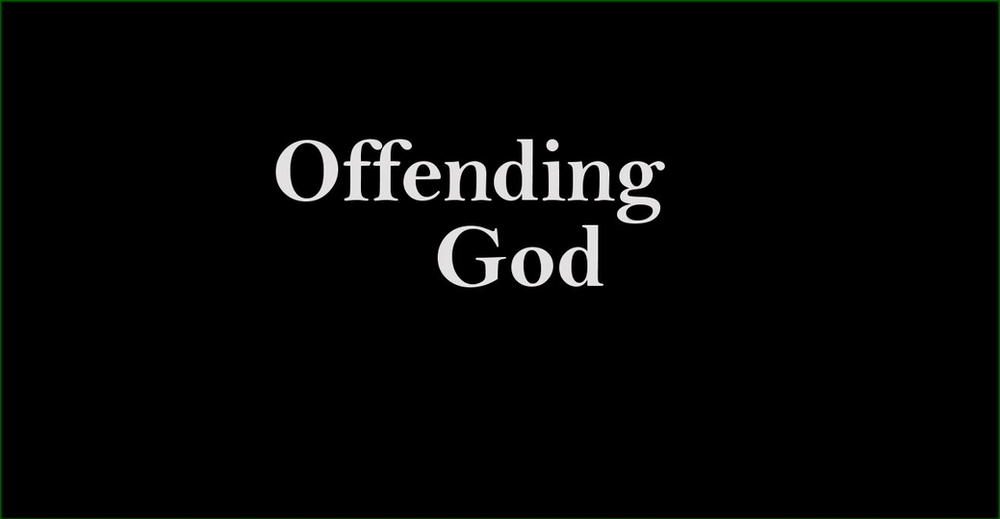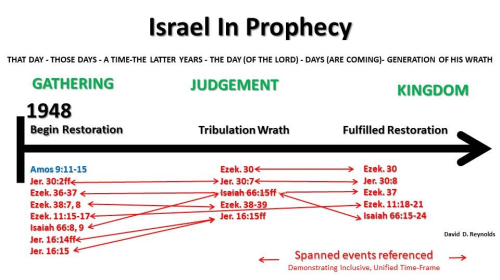
Offending God

Few topics rankle the believer more than being accused of observing paganism. When we think about paganism we think about ancient false idols, sacrificing children to Moloch and a variety of debauchery and orgies, all of which are the stuff of fringe cults and bygone cultures long deceased. So such accusations are unmerited today in this culture, we often tell ourselves.
In a melting pot of cultures such as we in particular find ourselves in the good ol’ U.S.A., can we really avoid all forms? Should we? What about the harmless and fun observations that hurt no one that have become so ingrained in our modern culture? There are some considerations it would behoove us to consider. We would be remiss in our sanctifying life-long journey to a more pure holiness if we did not prayerfully consider and meditate upon.
Do we mix paganism as the Corinthians did at the Lord’s Table? What about our style of worship? Does it rightly represent Biblical examples of worship, or are we, as the sons of Aaron did, bringing our own brand of Strange Fire to worship, for which they lost their lives? And what about other areas of our lives where culture so easily influences our devotion to Christ?
In Exodus we have the infamous story of the Israelites crafting a golden calf while Moses is up on the mountain receiving the Ten Commandments. Although the story was the recent subject within Sunday School material, some interesting historical notes did come out of it.
The Bull (not really “calf”) from the Egyptian culture was considered a high compliment. The bull was strong, fierce and greatly respected. The Jews were coming out of a confused mish-mash of Egyptian culture. Their God had led them out through Moses, plus, like the two horns of the bull, in two different forms; as a pillar of cloud by day, and at night a pillar of fire. Now, Moses had been up on the mountain, we know, for over a month. And if Moses was up on the mountain speaking with God, where were the two pillars? You see, they were not there to lead them and the people grew characteristically insecure.
The people went to Aaron for comfort. They had no clue what happened to Moses and likely Aaron was not real sure either what was going on. Aaron decided to pacify them and give in, to make them happy and keep them satisfied. After all what could it hurt? He would make a strong and impressive bull just as a sort of Symbol of the Lord, the bulls horns representing the two aspects of God they had grown accustomed to. Recall that Moses was at the time up to get the Ten Commandments. There was not yet a commandment against graven images.
But Aaron, as is so easy with us, worked to justify this bit of paganism by telling himself it’s not really paganism if he does it to honor God. If the Lord is honored in it, then it’s a good thing. When he’d finished he pointed to the glorious golden bull, a vision of strength and majesty. They commenced to building an alter. Aaron assuaged his conscience by declaring, ““Tomorrow is a feast to the Lord.” Then they rose early on the next day, offered burnt offerings, and brought peace offerings.
Aaron’s good intentions were short lived as the Feast became a gluttonous binge-eating frenzy and drinking fest. All in good fun, right? Just having fun and God is honored in the feast… except that they also slipped into another quaint pagan Egyptian tradition of orgies.
Paul referenced this occasion in his letter to the Corinthians in chapter ten. Read how displeased was the Lord:
Moreover, brethren, I do not want you to be unaware that all our fathers were under the cloud, all passed through the sea, 2 all were baptized into Moses in the cloud and in the sea, 3 all ate the same spiritual food, 4 and all drank the same spiritual drink. For they drank of that spiritual Rock that followed them, and that Rock was Christ. 5 But with most of them God was not well pleased, for their bodies were scattered in the wilderness.
We read that several thousands were killed in a single day. A few verses later Paul offers this caution:
11 Now all these things happened to them as examples, and they were written for our admonition, upon whom the ends of the ages have come.
12 Therefore let him who thinks he stands take heed lest he fall.
Paul anticipates the church’s reaction, that they will object that idols aren’t real. What’s wrong with eating meat sacrificed to idols? We are Christians and it’s a shame to waste perfectly good meat for our feast to the Lord, so long as we are honoring Him in it. What’s the big deal?
Paul poses it this way:
18 Observe Israel after the flesh: Are not those who eat of the sacrifices partakers of the altar? 19 What am I saying then? That an idol is anything, or what is offered to idols is anything?
After all, the pagan stuff is not real and as long as we are making it about Jesus and honoring him, that’s what matters, right? And then Paul offers this chilling response it would be well for us all to tend to.
20 Rather, that the things which the Gentiles sacrifice they sacrifice to demons and not to God, and I do not want you to have fellowship with demons. 21 You cannot drink the cup of the Lord and the cup of demons; you cannot partake of the Lord’s table and of the table of demons. 22 Or do we provoke the Lord to jealousy? Are we stronger than He?
So, we might be inclined to object because we are no longer under the Law, as Israel was. We are under grace. Yet Paul says to mix paganism in with the spiritual is akin to setting the Lord’s table with demons. Is it legal? Are we not free in Christ and saved for eternity?
23 All things are lawful for me, but not all things are helpful; all things are lawful for me, but not all things edify.
So then, why should I care if some Christians have a problem and their own conscience can’t handle it? To that Paul responds:
29 “Conscience,” I say, not your own, but that of the other. For why is my liberty judged by another man’s conscience? 30 But if I partake with thanks, why am I evil spoken of for the food over which I give thanks?
31 Therefore, whether you eat or drink, or whatever you do, do all to the glory of God. 32 Give no offense, either to the Jews or to the Greeks or to the church of God, 33 just as I also please all men in all things, not seeking my own profit, but the profit of many, that they may be saved.
So we do have liberty in Christ, but are we in danger of provoking the Lord to Jealousy because we are forcing Him to share His honor with some pagan idol who, real or not? Are we mixing our worship by sitting down with demons while we honor God? And yes, we must ask as Paul does here, are we giving offense? Questions to prayerfully ponder.
Perhaps the real question is not whether not I am offended because someone else has accused me of paganism and should rather consider whether God is offended and seek the answer from Him.









